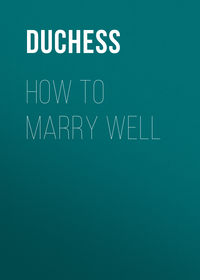 полная версия
полная версияAiry Fairy Lilian
"Sneering, Lilian, is a habit that should be confined to those old in sorrow or worldly wisdom: it sits badly on such lips as yours."
"Then why compel me to indulge in it? Give me my way in this one instance, and I will be good, and will probably never sneer again."
"I cannot."
"Then don't!" naughtily, made exceeding wroth by (what she is pleased to term) his obstinacy. "I was foolish in thinking I could influence you in any way. Had Florence asked you, you would have said yes instantly."
"Florence would never have asked me to do anything so unreasonable."
"Of course not! Florence never does wrong in your eyes. It is a pity every one else does not regard her as favorably as you do."
"I think every one thinks very highly of her," angrily.
"Do you? It probably pleases you to think so. I, for one, do not."
"There is a certain class of people whose likes and dislikes cannot possibly be accounted for," says Guy, somewhat bitterly. "I think you would find a difficulty in explaining to me your vehement antipathy toward Miss Beauchamp. You should remember 'unfounded prejudices bear no weight.'"
"That sounds like one of Miss Beauchamp's own trite remarks," says Lilian, with a disagreeable laugh. "Did you learn it from her?"
To this Chetwoode makes no reply, and Lilian, carried away by resentment at his open support of Florence, and by his determination not to accede to her request about young Heskett, says, passionately:
"Why should you lose your temper about it?" (it is her own temper that has gone astray). "It is all not worth a quarrel. Any one may plainly see how hateful I am to you. In a thousand ways you show me how badly you think of me. You are a petty tyrant. If I could leave your house, where I feel myself unwelcome, – at least as far as you are concerned, – I would gladly do so."
Here she stops, more from want of breath than eloquence.
"Be silent," says Guy, turning to confront her, and thereby showing a face as pale as hers is flushed with childish rage and bafflement. "How dare you speak like that!" Then, changing his tone, he says quietly, "You are wrong; you altogether mistake. I am no tyrant; I do what is just according to my own conscience. No man can do more. As to what else you may have said, it is impossible you can feel yourself unwelcome in my house. I do not believe you feel it."
"Thank you," still defiant, though in truth she is a little frightened by his manner: "that is as much as to say I am telling a lie, but I do believe it all the same. Every day you thwart and disappoint me in one way or another, and you know it."
"I do not, indeed. It distresses me much that you should say so. So much, that against my better judgment I give in to you in this matter of Heskett, if only to prove to you how you wrong me when you say I wish to thwart you. Heskett is pardoned."
So saying, he turns from her abruptly and half contemptuously, and, striking across the grass, makes for a path that leads indirectly to the stables.
When he has gone some yards it occurs to Miss Chesney that she feels decidedly small. She has gained her point, it is true, but in a sorry fashion, and one that leaves her discontented with her success. She feels that had he done rightly he would have refused to bandy words with her at all upon the subject, and he would not have pardoned the reprehensible Heskett; something in his manner, too, which she chooses to think domineering, renders her angry still, together with a vague, uneasy consciousness that he has treated her throughout as a child and given in to her merely because it is a simpler matter to surrender one's judgment than to argue with foolish youth.
This last thought is intolerable. A child, indeed! She will teach him she is no child, and that women may have sense although they have not reached the admirable age of six-and-twenty.
Without further thought she runs after him, and, overtaking him just as he turns the corner, says, very imperiously, with a view to sustaining her dignity:
"Sir Guy, wait: I want to speak to you."
"Well," he says, stopping dead short, and answering her in his iciest tones. He barely looks at her; his eyes, having once met hers, wander away again without an instant's lingering, as though they had seen nothing worthy of attention. This plain ignoring of her charms is bitter to Miss Chesney.
"I do not want you to forgive that boy against your will," she says, haughtily. "Take back your promise."
"Impossible! You have made me break my word to myself; nothing shall induce me to break my word to you. Besides, it would be unfair to Heskett. If I were to dismiss him now I should feel as though I had wronged him."
"But I will not have his pardon so."
"What!" – scornfully, – "after having expended ten minutes in hurling at me some of the severest eloquence it has ever been my fate to listen to, all to gain this Heskett's pardon, you would now have it rescinded! Am I to understand so much?"
"No; but I hate ungraciousness."
"So do I," – meaningly, – "even more than I hate abuse."
"Did I abuse you?"
"I leave you to answer that question."
"I certainly," with some hesitation, "said you were a tyrant."
"You did," calmly.
"And that – "
"Do not let us go over such distasteful ground again," interrupts he, impatiently: "you said all you could say, – and you gained your object. Does not even that satisfy you?"
"I wish I had never interested myself in the matter," she says, angrily, vexed with herself, and with him, and with everything.
"Perhaps your wisdom would have lain in that direction," returns he, coolly. "But as you did interest yourself, and as victory lies with you, you should be the one to rejoice."
"Well, I don't," she says impulsively. And then she looks at him in a half-defiant, half-penitent, wholly charming way, letting her large soft eyes speak for her, as they rest full upon his face. There is something in her fresh young beauty almost irresistible. Guy, with an angry sigh, acknowledges its power, and going nearer to her, takes both her clasped hands in his.
"What a bad-tempered little girl you are!" he says, in a jesting tone, that is still full of the keenest reproach. "Am I as bad as Brutus and all those terrible Medes and Persians? I confess you made me tremble when you showered upon me all those awful comparisons."
"No, no, I was wrong," she says, hastily, twining her small fingers closely round his; then very softly, "You are always forgiving me, are you not? But yet – tell me, Guardy – are you not really glad you have pardoned that poor Heskett? I cannot be pleased about it myself so long as I think I have only wrung your promise from you against your will. Say you are glad, if only to make me happy."
"I would do anything to make you happy, – anything," he says, in a strange tone, reading anxiously her lovely riante face, that shows no faintest trace of such tenderness as he would fain see there; then, altering his voice with an effort, "Yes, I believe I am glad," he says, with a short laugh: "your intercession has removed a hateful duty from my shoulders."
"Where is the boy? Is he locked up, or confined anywhere?"
"Nowhere. I never incarcerate my victims," with a slight trace of bitterness still in his manner. "He is free as air, in all human probability poaching at this present moment."
"But if he knows there is punishment in store for him, why doesn't he make his escape?"
"You must ask him that, because I cannot answer the question. Perhaps he does not consider me altogether such a fiend as you do, and may think it likely I will show mercy at the last moment."
"Or perhaps," says Lilian, "he has made his escape long ago."
"I don't think so. Indeed, I am almost sure, if you look straight along that field" – pointing in a certain direction – "you will see the young gentleman in question calmly smoking the pipe of peace upon a distant wall."
"It is he," says Lilian, in a low tone, after a careful examination of the youthful smoker. "How little he seems to fear his fate!"
"Yes, just fancy how lightly he views the thought of falling into the clutches of a monster!" remarks Chetwoode, with a mocking smile.
"I think you are a little hard on me," says Lilian, reproachfully.
"Am I?" carelessly preparing to leave her. "If you see that promising protégé of yours, Lilian, you can tell him from me that he is quite at liberty to carry on his nightly games as soon as he pleases. You have no idea what a solace that news will be to him; only, if you have any regard for him, advise him not to be caught again."
So saying, he leaves her and continues his interrupted march to the stables.
When Miss Chesney has spent a moment or two inveighing silently against the hardness and uncharitableness of men in general and Sir Guy Chetwoode in particular, she accepts the situation, and presently starts boldly for the hollow in which lies the modest homestead of the venerable Mrs. Heskett.
The unconscious cause of the battle royal that has just taken place has evidently finished his pipe and lounged away through the woods, as he is nowhere to be seen. And Miss Chesney makes up her mind, with a view to killing the time that must elapse before dinner, to go straight to his mother's cottage, and, by proclaiming Sir Guy's leniency, restore peace to the bosom of that ancient dame.
And as she walks she muses on all that has passed between herself and her guardian during the last half-hour. After all, what did she say that was so very bad?
She had certainly compared him to Brutus, but what of that? Brutus in his day was evidently a shining light among his people, and, according to the immortal Pinnock, an ornament to his sex. Suppose he did condemn his only son to death, what did that signify in a land where the deed was looked upon as meritorious? Weak-minded people of the present day might call him an old brute for so doing, but there are two sides to every question, and no doubt the young man was a regular nuisance at home, and much better out of the way.
Then again she had likened him to the Medes and Persians; and why not? Who should say the Medes and Persians were not thoroughly respectable gentlemen, polished and refined? and though in this case again there might be some who would prefer the manners of a decent English gentleman to those of the present Shah, that is no reason why the latter should be regarded so ignominiously.
She has reached this highly satisfactory point in her argument when a body dropping from a tree near her, almost at her feet, startles her rudely from her meditations.
"Dear me!" says Lilian, with much emphasis, and then knows she is face to face with Heskett.
He is a tall lad, brown-skinned as an Italian, with eyes and hair of gypsy dye. As he stands before Lilian now, in spite of his daring nature, he appears thoroughly abashed, and with his eyes lowered, twirls uneasily between his hands the rather greasy article that usually adorns his brow.
"I beg your pardon, miss," he says, slowly, "but might I say a word to you?"
"I am sorry to hear such bad accounts of you, Heskett," says Miss Chesney, in return, with all the airs of a dean and chapter.
"Sir Guy has been telling you, miss?" says the lad, eagerly; "and it is about my trouble I wanted to see you. They say you have great weight with the baronet, miss, and once or twice you spoke kindly to me, and I thought maybe you would say a word for me."
"You are mistaken: I have no influence," says Lilian, coloring faintly. "And besides, Heskett, there would be little use in speaking for you, as you are not to be trusted."
"I am, Miss Chesney, I am indeed, if Sir Guy would only try me again. I don't know what tempted me last night, but I got my lesson then, and never again, I swear, Miss – "
Here a glance at Lilian's face checks further protestations. She is not looking at him; her gaze is concentrated upon the left pocket of his coat, though, indeed, there is little worthy of admiration in the cut of that garment. Following the direction of her eyes, Heskett's fall slowly, until at length they fasten upon the object that has so attracted her.
Sticking up in that luckless left pocket, so as plainly to be seen, is a limp and rather draggled brown wing, the undeniable wing of a young grouse.
"Heskett," says Lilian, severely, "what have you been doing?"
"Nothing, miss," desperately.
"Heskett," still more severely, and with just a touch of scorn in her tone, "speak the truth: what have you got in your pocket?"
"It's just a grouse, then," says the boy, defiantly, producing the bonny brown bird in question.
"And a fat one," supplements Lilian. "Oh, Heskett, when you know the consequences of poaching, how can you do it?"
"'Tis because I do know it," – recklessly: "it's all up with me this time because the baronet swore he'd punish me next time I was caught, and he never breaks his word. So I thought, miss, I'd have a last fling, whatever came of it."
"But it isn't 'all up' with you," says Lilian. "I have spoken to Sir Guy, and he has promised to give you one more chance. But I cannot speak again, Heskett, and if you still persist in your evil ways I shall have spoken in vain."
"You spoke for me?" exclaims he, incredulously.
"Yes. But I fear I have done no good."
The boy's eyes seek the ground.
"I didn't think the likes of you would care to say a kind word for such as me, – and without the asking," he says, huskily. "Look here, Miss Chesney, if it will please you, I swear I will never again snare a bird."
"Oh, Heskett, will you promise really?" returns Lilian, charmed at her success, "and can I trust you? You know you gave your word before to Sir Guy."
"But not to you, miss. Yes, I will be honest to please you. And indeed, Miss Chesney, when I left home this morning I never meant to kill a thing. I started with a short oak stick in my hand, quite innocent like, and up by the bit of heather yonder this young one ran across my path; I didn't seek it, and may bad luck go with the oak stick, for, before I knew what I meant, it flew from me, and a second later the bird lay dead as mutton. Not a stir in it. I was always a fine shot, miss, with a stick or a stone," says the accomplished Heskett, regarding his grouse with much pride. "Will you have it, miss?" he says then, holding it out to her.
"No, thank you," loftily: "I am not a receiver of stolen goods; and it is stolen, remember that."
"I suppose so, miss. Well, as I said before, I will be honest now to please you, you have been so good to me."
"You should try to please some One higher," says Lilian, with a solemnity that in her is sweeter than it is comical.
"Nay, then, miss, – to please you first, if I may."
"Tell me," says Lilian, shifting ground as she finds it untenable, "why do you never come to church?"
"It's so mighty dull, miss."
"You shouldn't find it so. Come and say your prayers, and afterward you may find it easier to be good. You should not call church dull," with a little reproving shake of the head.
"Do you never find it stupid, Miss Chesney?" asks Heskett, with all diffidence.
Lilian pauses. This is a home-thrust, and her innate honesty prevents the reply that trembles on her lips. She does find it very stupid now and then.
"Sometimes," she says, with hesitation, "when Mr. Austen is preaching I cannot think it quite as interesting as it might be: still – "
"Oh, as for him," says Heskett, with a grin, "he ought to be shot, miss, begging your pardon, that's what he ought. I never see him I don't wish he was a rabbit snug in one o' my snares as was never known to fail. Wouldn't I wring his neck when I caught him! maybe not! comin' around with his canting talk, as though he was the archbishop hisself."
"How dare you speak of your clergyman in such a way?" says Lilian, shocked; "you are a bad, bad boy, and I am very angry with you."
"Don't then, Miss Chesney," piteously; "I ask your pardon humbly, and I'll never again speak of Mr. Austen if you don't like. But he do aggravate awful, miss, and frightens the life out o' mother, because she do smoke a bit of an evenin', and it's all the comfort she have, poor soul. There's the Methody parson below, even he's a better sort, though he do snivel horrid. But I'll do anything to please you, miss, an' I'll come to church next Sunday."
"Well, mind you do," says Lilian, dismissing him with a gracious nod.
So Heskett departs, much exercised in mind, and in the lowest spirits, being full of vague doubts, yet with a keen consciousness that by his promise to Miss Chesney he has forfeited his dearest joy, and that from him the glory of life has departed. No more poaching, no more snaring, no more midnight excursions fraught with delicious danger: how is he to get on in future, with nothing to murder but time?
Meanwhile Miss Chesney, coming home flushed with victory, encounters Florence in the garden wandering gracefully among the flowers, armed as usual with the huge umbrella, the guardian of her dear complexion.
"You have been for a walk?" she asks Lilian, with astonishing bonhommie. "I hope it was a pleasant one."
"Very, thank you."
"Then you were not alone. Solitary walks are never pleasant."
"Nevertheless, mine was solitary."
"Then, Guy did not go with you?" somewhat hastily.
"No. He found he had something to do in the stables," Lilian answers, shortly.
Miss Beauchamp laughs a low, soft, irritative laugh.
"How stupid Guy is!" she says. "I wonder it never occurs to him to invent a new excuse: whenever he wants to avoid doing anything unpleasant to him, he has always some pressing business connected with the stables to take him away. Have you noticed it?"
"I cannot say I have. But then I have not made a point of studying his eccentricities. Now you have told me this one, I dare say I shall remark it in future. You see," with a slight smile, "I hold myself in such good esteem that it never occurred to me others might find my company disagreeable."
"Nor do they, I am sure," – politely, – "but Guy is so peculiar, at times positively odd."
"You amaze me more and more every moment. I have always considered him quite a rational being, – not in the least madder than the rest of us. I do hope the new moon will have no effect upon him."
"Ah! you jest," languidly. "But Guy does hold strange opinions, especially about women. No one, I think, quite understands him but me. We have always been so – fond of each other, he and I."
"Yes? Quite like brother and sister, I suppose? It is only natural."
"Oh, no" emphatically, her voice taking a soft intonation full of sentimental meaning, "not in the very least like brother and sister."
"Like what then?" asks Lilian, somewhat sharply for her.
"How downright you are!" with a little forced laugh, and a modest drooping of her white lids; "I mean, I think a brother and sister are hardly so necessary to each other's happiness as – as we are to each other, and have been for years. To me, Chetwoode would not be Chetwoode without Guy, and I fancy – I am sure – it would scarcely be home to Guy without me." This with a quiet conviction not to be shaken. "Perhaps you can see what I mean? though, indeed," with a smile, "I hardly know myself what it is I do mean."
"Ah!" says Lilian, a world of meaning in her tone.
"The only fault I find with him," goes on Florence, in the low, prettily modulated tone she always adopts, "is, that he is rather a flirt. I believe he cannot help it; it is second nature to him now. He adores pretty women, and at times his manner to them is rather – er – caressing. I tell him it is dangerous. Not perhaps that it makes much difference nowadays, does it? when women have learned to value attentions exactly at what they are worth. For my own part, I have little sympathy with those foolish Ariadnes who spend their lives bemoaning the loss of their false lovers. Don't you agree with me?"
"Entirely. Utterly," says Lilian, in a curious tone that might be translated any way. "But I cannot help thinking Fortune very hard on the poor Ariadnes. Is that the dressing-bell? How late it has grown! I am afraid we must go in if we wish to be in time for dinner."
Miss Beauchamp being possessed with the same fear, they enter the house together, apparently in perfect amity with each other, and part in peace at their chamber doors. Lilian even bestows a little smile upon her companion as she closes hers, but it quickly changes into an unmistakable little frown as the lock is turned. A shade falls across her face, an impatient pucker settles comfortably upon her forehead, as though it means to spend some time there.
"What a hateful girl that is!" Lilian says to herself, flinging her hat with a good deal of vehemence on to the bed (where it makes one desperate effort to range itself and then rolls over to the floor at the other side), and turning two lovely wrathful eyes toward the door, as though the object of her anger were still in sight. "Downright detestable! and quite an old maid; not a doubt of it. Women close on thirty are always so spiteful!"
Here she picks up the unoffending hat, and almost unconsciously straightens a damaged bow while her thought still runs on passionately.
So Sir Guy "adores pretty women." By the bye, it was a marvelous concession on Miss Beauchamp's part to acknowledge her as such, for without doubt all that kindly warning was meant for her.
Going up to her glass, Lilian runs her fingers through the rippling masses of her fair hair, and pinches her soft cheeks cruelly until the red blood rushes upward to defend them, after which, she tells herself, even Florence could scarcely have said otherwise.
And does Miss Beauchamp think herself a "pretty woman?" and does Sir Guy "adore her?" She said he was a flirt. But is he? Cyril is decidedly given that way, and some faults run in families. Now she remembers certain lingering glances, tender tones, and soft innuendoes meant for her alone, that might be placed to the account of her guardian. She smiles somewhat contemptuously as she recalls them. Were all these but parts of his "caressing" manner? Pah! what a sickening word it is.
She blushes hotly, until for a full minute she resembles the heart of a red, red rose. And for that minute she positively hates her guardian. Does he imagine that she —she– is such a baby as to be flattered by the attentions of any man, especially by one who is the lover of another woman? for has not Florence both in words and manner almost claimed him as her own? Oh, it is too abominable! And —
But never mind, wait, and when she has the opportunity, won't she show him, that's all?
What she is to show him, or how, does not transpire. But this awful threat, this carefully disguised and therefore sinister menace, is evidently one of weight, because it adds yet a deeper crimson to Miss Chesney's cheeks, and brings to life a fire within her eyes, that gleams and sparkles there unrebuked.
Then it quietly dies, and nurse entering finds her little mistress again calm, but unusually taciturn, and strangely forgetful of her teasing powers.
CHAPTER XII
"Sae sweet his voice, sae smooth his tongueHis breath's like caller air;His very fit has music in't,As he comes up the stair.And will I see his face again?And will I hear him speak?I'm downright dizzy with the thought,In troth I'm like to greet." – W. J. Mickle.It is the most important day of all the three hundred and sixty-five, at least to Lilian, because it will bring her Taffy. Just before dinner he will arrive, not sooner, and it is now only half-past four.
All at Chetwoode are met in the library. The perfume of tea is on the air; the click of Lady Chetwoode's needles keeps time to the conversation that is buzzing all round.
Miss Beauchamp, serene and immovable as ever, is presiding over the silver and china, while Lilian, wild with spirits, and half mad with excitement and expectation, is chattering with Cyril upon a distant sofa.
Sir Guy, upon the hearthrug, is expressing his contempt for the views entertained by a certain periodical on the subject of a famous military scandal, in real parliamentary language, and Florence is meekly agreeing with him straight through. Never was any one (seemingly) so thoroughly en rapport with another as Florence with Sir Guy. Her amiable and rather palpable determination to second his ideas on all matters, her "nods and becks and wreathed smiles," when in his company, would, if recited, fill a volume in themselves. But I don't deny it would be a very stupid volume, from the same to the same: so I suppress it.









